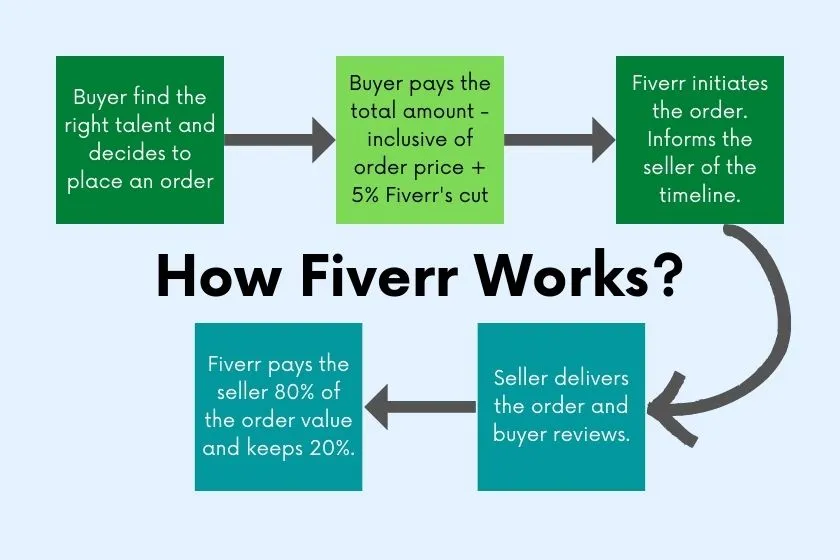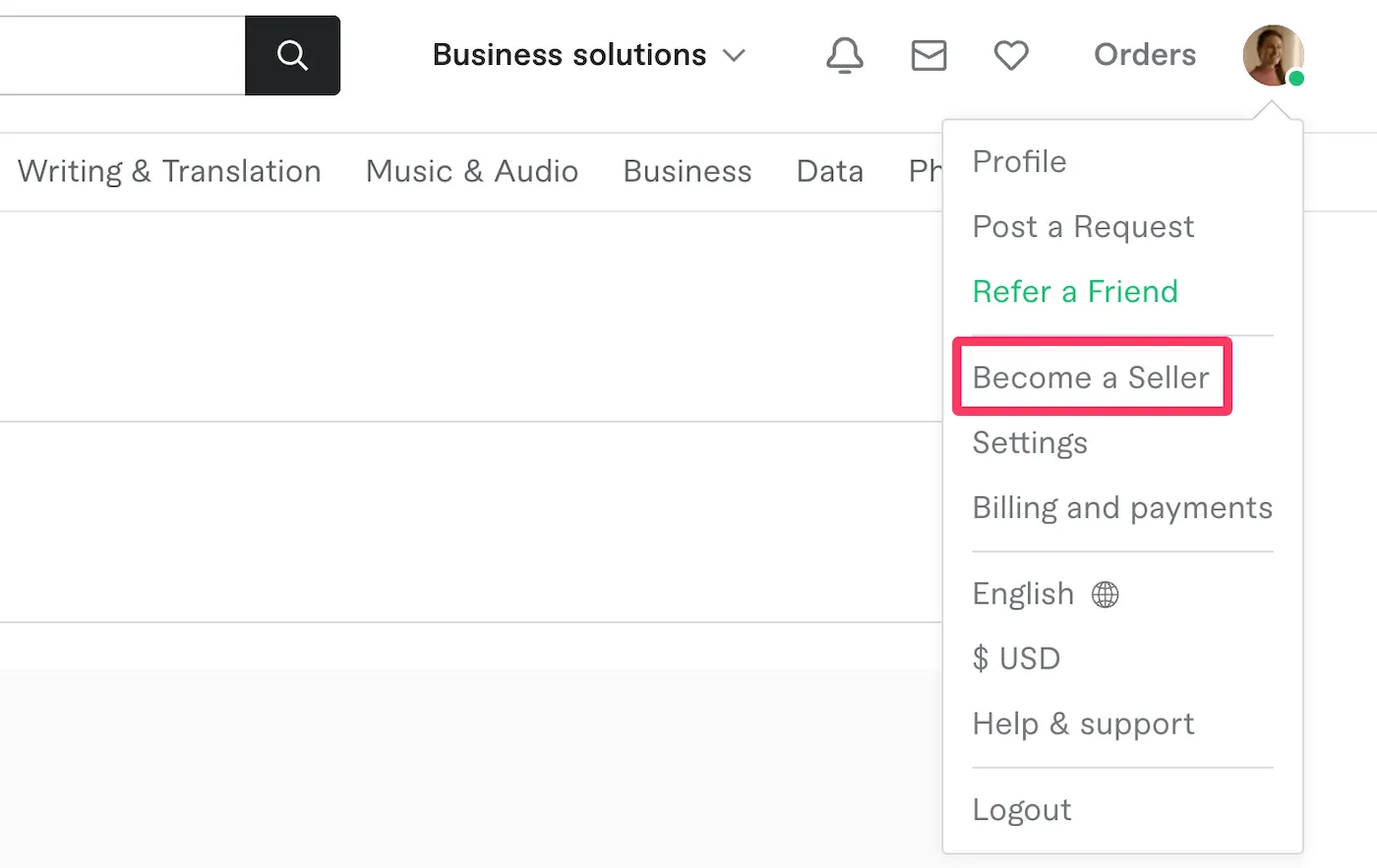Fiverr has revolutionized the freelance marketplace, providing countless opportunities for individuals to monetize their skills and talents. Have you ever thought about turning your passion into a paycheck? That's exactly what Fiverr allows you to do—it's like an online global marketplace where you can offer services known as "gigs." From graphic design to writing and programming, the options are virtually limitless.
With millions of users worldwide, Fiverr connects sellers with potential buyers who are looking for specific services. As a seller, you set your prices, showcase your portfolio, and interact directly with clients. It’s an exciting platform that not only provides financial rewards but also allows for creative freedom. You can work from anywhere at your own pace—what's not to love about that?
But hold on a second. While you’re busy watching your Fiverr gig generate income, have you paused to think about the responsibilities that come along with your newfound earnings? Yes, we’re talking about taxes! Just like any business or freelance work, earning income on Fiverr can come with tax obligations. In the following sections, we’ll dive into those requirements so you can confidently navigate the financial waters of being a Fiverr seller.
Understanding Tax Obligations for Fiverr Sellers

As a Fiverr seller, it’s crucial to understand the tax obligations that accompany your earnings. Unlike traditional employment, freelance work involves some added intricacies regarding taxes. Here’s what you need to know:
- Self-Employment Taxes: Since you’re technically self-employed, you'll need to report your Fiverr income on your tax return. This means you might be subject to self-employment taxes. Generally, if you make *$400 or more* in a year, you’ll likely need to file a tax return.
- Tracking Income: Keep good records! It’s essential to track all your earnings accurately. Fiverr provides you with earnings reports, but it’s a good idea to maintain your own records as well, including invoices and any expenses incurred.
- Business Expenses: Did you know you can deduct certain expenses related to your Fiverr gigs? This might include costs for software, hardware, internet services, or even marketing costs to promote your gig. Tracking these will lower your taxable income.
- Estimated Tax Payments: Unlike regular employees who have taxes withheld from their paychecks, freelancers often need to make quarterly estimated tax payments. Make sure you plan ahead so you’re not hit with a hefty bill come tax season.
In a nutshell, you’ve got some responsibilities that come with being your own boss on Fiverr. While it’s absolutely thrilling to earn money doing what you love, staying on top of your tax obligations is just as crucial. The more you know, the less stress you'll feel when tax season rolls around! And remember, when in doubt, consult a tax professional to help you navigate your specific situation.
Also Read This: Are People on Fiverr Legit? Understanding Quality and Trustworthiness
Does Fiverr Withhold Taxes on Earnings?

When you're making income as a seller on Fiverr, it's essential to understand how taxes come into play. One common question that often arises is whether Fiverr withholds taxes on your earnings. The short answer is: No, Fiverr does not withhold taxes on your earnings.
This means that the responsibility of managing and paying your taxes falls entirely on your shoulders. Fiverr operates as a platform where freelancers can offer their services, but they do not act as your employer. Here’s a breakdown of what that means for you:
- Independent Contractor Status: When you sell your services on Fiverr, you are considered an independent contractor, not an employee. This classification has significant implications for tax withholding.
- Self-Employment Taxes: As an independent contractor, you may be subject to self-employment taxes, which cover Social Security and Medicare. It's crucial to set aside a portion of your earnings for these taxes.
- No Automatic Deductions: Unlike traditional employment where taxes are deducted from your paycheck, Fiverr pays you the full amount earned without any withholding.
In sum, while it is convenient to earn money on Fiverr, it’s equally important to stay informed about your tax obligations. It’s a good idea to consult with a tax professional or do your own research to understand what you’ll owe when tax season arrives.
Also Read This: How to Set Up PayPal for Fiverr
How to Report Your Fiverr Income

Now that you understand Fiverr's position on tax withholding, it's time to dive into the nitty-gritty of reporting your Fiverr income. Regardless of where you are located, it's crucial to keep accurate records of your earnings, as well as any associated expenses. Here’s a step-by-step guide to help you with the process:
- Gather Your Income Records: Start by logging into your Fiverr account and downloading your earnings report. Fiverr provides you with an earnings summary that makes it easier to see how much you’ve made over time.
- Track Your Expenses: Keep track of any expenses related to your Fiverr business, such as software subscriptions, advertising costs, or any tools you purchase. These can often be deducted from your taxable income.
- Choose the Right Form: Depending on your country, the forms you use to report income may differ. In the U.S., for example, freelancers typically use Form 1040 and Schedule C to report business income and expenses.
- Include Your Earnings: Make sure to report the total income you earned on Fiverr. Even if you made less than the threshold for reporting, it’s good practice to keep everything transparent.
- Consult a Professional: If you're unsure about any aspect of reporting your income, do not hesitate to seek advice from a tax professional. They can provide you with guidance tailored to your specific situation.
By taking these steps, you can ensure you're reporting your Fiverr income accurately and staying compliant with tax laws. Remember, staying organized and informed makes the tax process much smoother!
Also Read This: How to Submit a Feedback Dispute on Fiverr
Common Tax Deductions for Fiverr Sellers

As a Fiverr seller, navigating the world of taxes can be a bit overwhelming. But one way to ease that burden is by leveraging tax deductions available to you. Understanding these deductions can significantly reduce your taxable income, ultimately minimizing the amount you owe come tax season. So, what are some common tax deductions that Fiverr sellers should consider?
Here’s a quick rundown:
- Business Expenses: Any costs directly related to your Fiverr gig can often be deducted. This could include software subscriptions (like Adobe Creative Cloud or Canva), tools, or any resources you use to deliver your services.
- Home Office Deduction: If you work from home, you might be eligible to deduct a portion of your home expenses. This typically involves calculating the square footage of your workspace compared to your home’s total size.
- Internet and Phone Bills: If you use your internet or phone for business purposes, you can deduct the proportion of these bills that relate to your Fiverr activities.
- Education and Training: Courses or materials for improving your skills—whether through online platforms or local workshops—can also be deductible.
- Bank Fees: Any fees associated with your business bank account or payment processing platform can typically be counted as business expenses.
By keeping accurate records and receipts of these expenses throughout the year, you can maximize your deductions and make your tax filing much smoother!
Also Read This: How to Get a US Number for Fiverr
Resources for Managing Your Taxes on Fiverr Income
Now that we've discussed the essentials of tax deductions, let’s look at some invaluable resources that can help you stay organized and compliant with your taxes as a Fiverr seller. Managing your taxes doesn’t have to be daunting; there are plenty of tools and support systems designed to assist you in this journey.
Here's a list of resources you might find useful:
- Accounting Software: Applications like QuickBooks, Wave, and FreshBooks simplify tracking income and expenses, making reporting a breeze.
- Tax Professionals: Hiring a certified public accountant (CPA) who understands freelance work can clarify your tax situation and ensure you're maximizing deductions.
- IRS Resources: The IRS website provides valuable information tailored to self-employed individuals, including forms and deadlines.
- Online Communities: Joining forums or groups on platforms like Reddit or Facebook can provide insights and support from fellow Fiverr sellers experiencing the same challenges.
- Tax Apps: Utilize apps like Xero or TurboTax that can streamline the filing process with ease.
With these resources in your toolkit, managing your taxes as a Fiverr seller can become a much less stressful task!
Does Fiverr Do Taxes? Understanding Your Responsibilities as a Seller
As a freelance seller on Fiverr, you might be wondering if the platform handles taxes on your behalf. The short answer is, no, Fiverr does not take on the responsibility of managing your taxes. As a seller, it is essential to understand your own tax obligations to ensure you remain compliant with local and federal regulations.
When you earn money through Fiverr, you are classified as an independent contractor. This means you are responsible for reporting your income and paying taxes. Here are some key points to consider:
- Income Reporting: All earnings from Fiverr must be reported as income on your tax return.
- Self-Employment Tax: As an independent contractor, you may be subject to self-employment tax, which covers Social Security and Medicare taxes.
- 1099 Form: If you earn over $600 in a calendar year, Fiverr will send you a form 1099-K or 1099-MISC. This form summarizes your earnings.
Here’s a brief overview of the key responsibilities you should keep in mind:
| Responsibility | Details |
|---|---|
| Keep Track of Earnings | Maintain detailed records of your Fiverr earnings and expenses. |
| Set Aside Funds for Taxes | As a rule of thumb, set aside approximately 25-30% of your income for taxes. |
| File Taxes Annually | File your federal and state tax returns each year to report income. |
In summary, Fiverr does not handle taxes for its sellers. It's essential to take charge of your financial responsibilities to stay compliant and avoid penalties. By maintaining accurate records, setting aside funds for taxes, and filing your returns in a timely manner, you can successfully navigate your tax obligations while maximizing your freelancing earnings.



